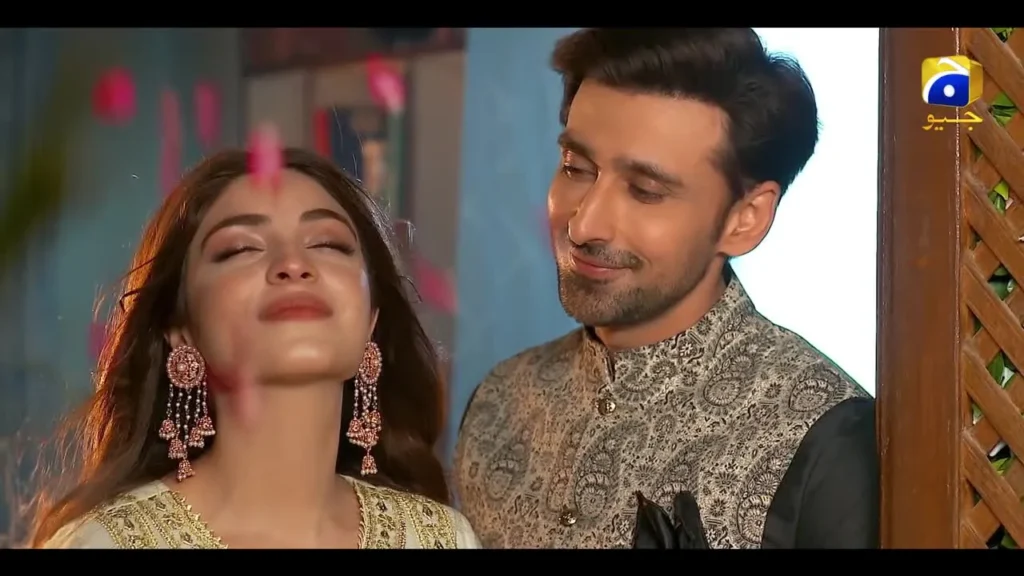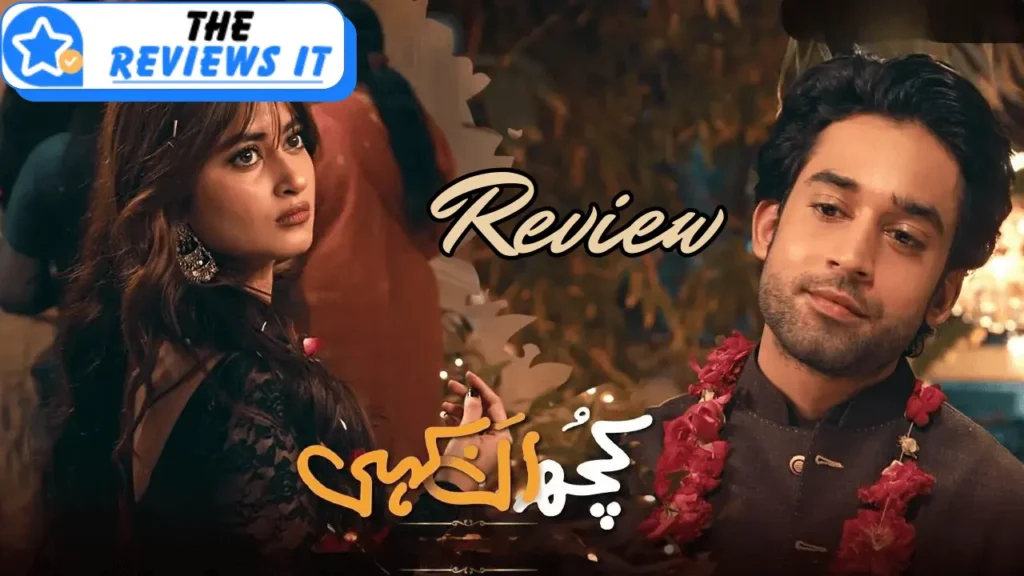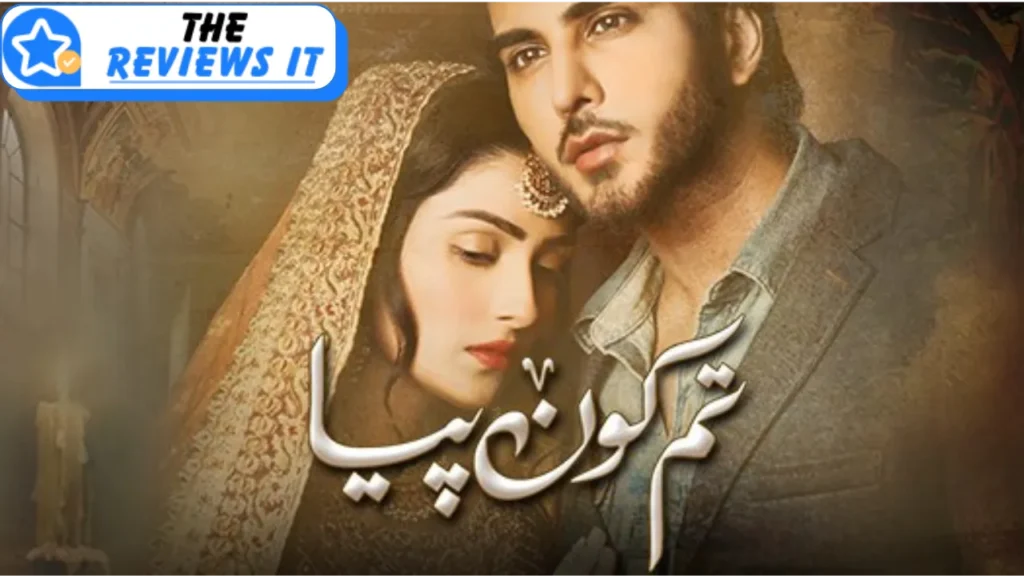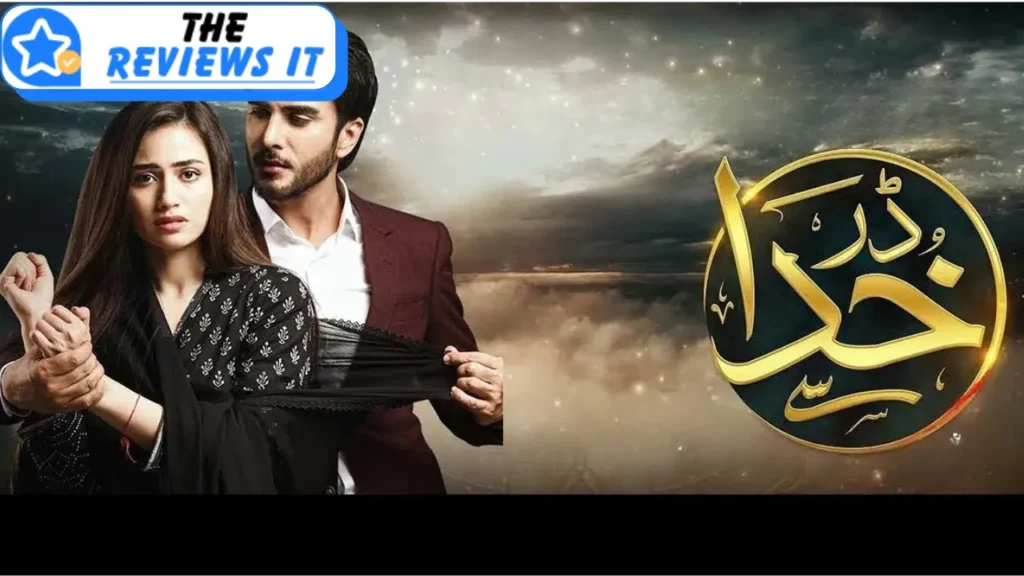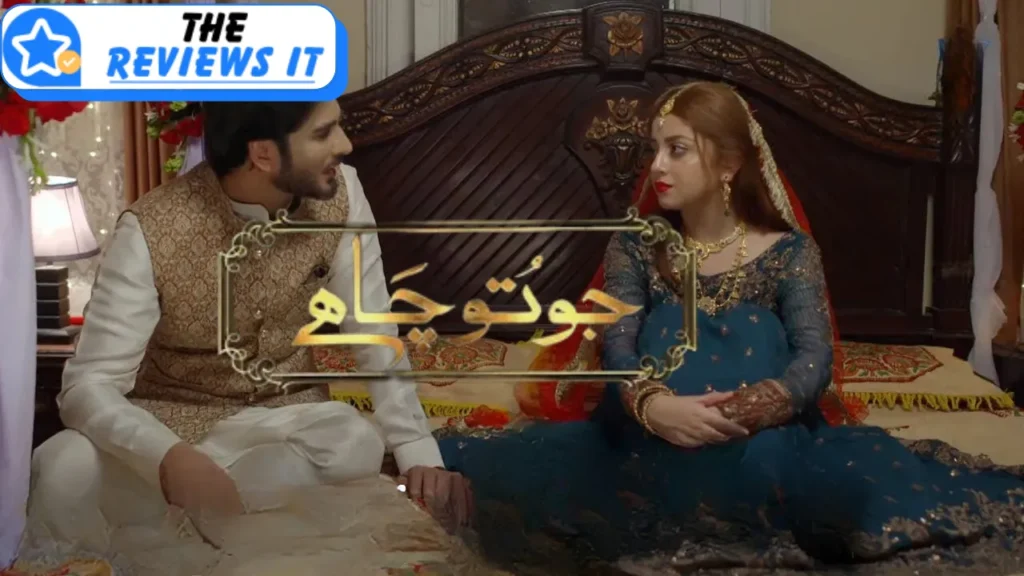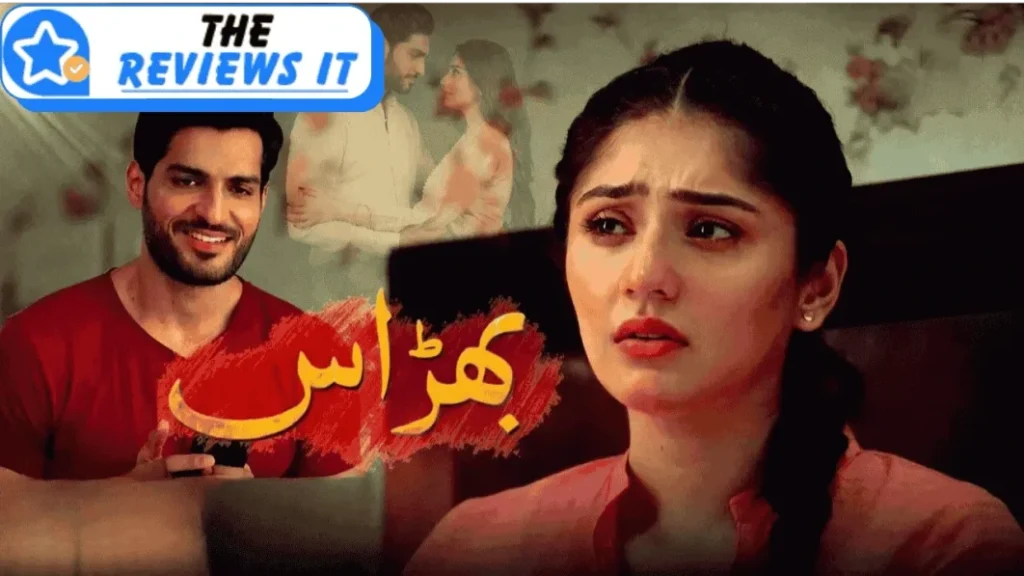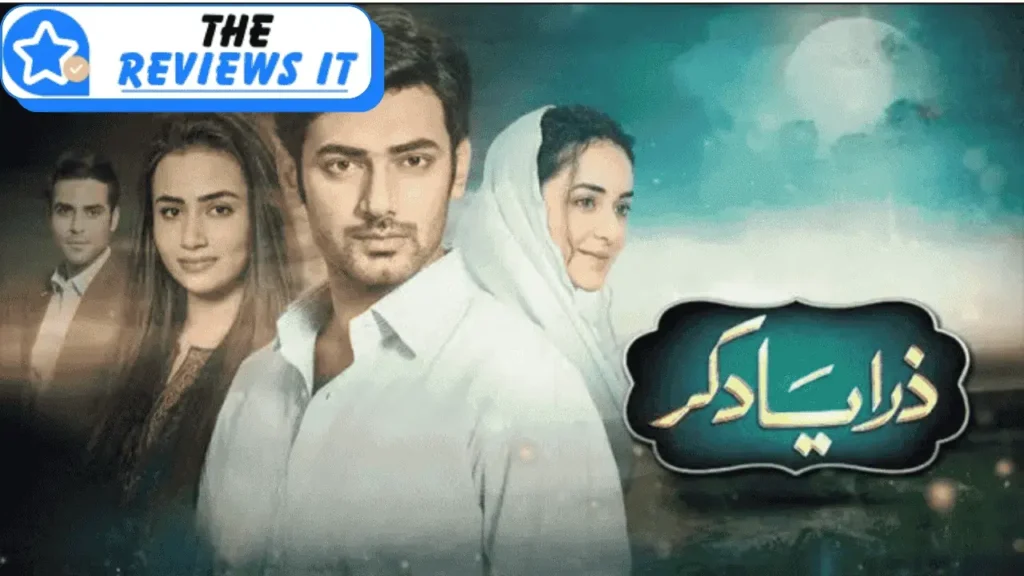Mohlat Drama Review, “Mohlat” is a Pakistani drama series that explores themes of love, betrayal, and societal expectations. The show is set against the backdrop of complex familial and social dynamics, delving into the lives of its characters as they navigate personal and relational challenges.
The narrative typically revolves around a central character or family whose lives are intertwined with themes of honor, sacrifice, and moral dilemmas. The series is known for its emotional depth, strong character development, and intricate plotlines, often reflecting the cultural and social nuances of Pakistani society.

Plot Summary
“Mohlat” centers around the dramatic lives of a family caught in a web of love, betrayal, and societal pressures. The story unfolds with intricate relationships and moral conflicts, highlighting the impact of choices on individuals and their families.
Key Plot Points:
Family Dynamics: The series opens with a well-established family whose life appears ideal but is fraught with underlying tensions and secrets. The family is often led by a patriarch or matriarch whose decisions significantly impact the plot.
Romantic Entanglements: Central to the drama is a complex love story. Characters find themselves in relationships that challenge traditional norms and expectations. These romantic connections often lead to significant personal and familial conflicts.
Betrayal and Secrets: As the story progresses, hidden betrayals and secrets come to light. These revelations shake the foundation of the family and alter the course of relationships, leading to dramatic confrontations and shifting alliances.
Social and Cultural Conflicts: The series incorporates societal issues and cultural expectations that affect the characters’ choices. These conflicts often highlight themes of honor, duty, and personal freedom.
Character Evolution: Throughout the drama, characters undergo significant personal growth. Their journeys involve confronting their past actions, seeking redemption, and redefining their values and relationships.
Key Plot Twists and Turns:
Hidden Past: A major twist might involve a character’s hidden past being exposed, leading to a reevaluation of their motives and relationships. This revelation often serves as a catalyst for subsequent events.
Unforeseen Betrayal: A trusted character’s betrayal can dramatically alter the dynamics within the family and between lovers. This betrayal typically has far-reaching consequences and leads to intense emotional and narrative shifts.
Surprising Alliances: Characters may form unexpected alliances in response to the evolving conflicts. These new partnerships can shift the balance of power and influence within the storyline.
Major Decisions: Characters face critical decisions that test their moral values and personal desires. These choices often lead to significant turning points in the plot and affect the outcome of key relationships
Revelations and Redemption: As the series nears its climax, revelations about characters’ true intentions and actions come to light. This often leads to a resolution where characters seek redemption or come to terms with their past actions.
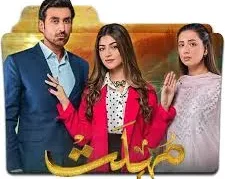
Character Analysis:
Sami Khan as Dawar
Role: Dawar is likely a central character in the drama, possibly the protagonist or a major figure whose actions and decisions significantly impact the storyline.
Character Traits: Dawar might be portrayed as a strong, principled, and sometimes conflicted individual. He could embody leadership qualities, charisma, and a sense of responsibility.
Development: Dawar’s character would typically experience substantial growth throughout the series, grappling with personal and professional challenges. His journey might involve navigating complex relationships, ethical dilemmas, and evolving values, leading to a deeper understanding of himself and his role in the narrative.
Kinza Hashmi as Maham
Role: Maham is likely a key female character, potentially the romantic lead or an important figure in the emotional and dramatic arcs of the series.
Character Traits: Maham might be characterized by her resilience, emotional depth, and strength. She could face significant personal and relational struggles, adding to the drama’s complexity.
Development: Her character’s evolution is likely marked by overcoming obstacles, personal growth, and changes in her relationships with other characters, especially Dawar. This journey often involves navigating romantic conflicts and personal realizations.
Komal Aziz as Nvera
Role: Nvera might be a supporting character who contributes to the central narrative or subplots, possibly involved in key relational or dramatic developments.
Character Traits: Nvera could be portrayed as supportive, nurturing, or possessing a strong moral compass. Her role might add depth to the primary storyline.
Development: Her character’s arc may involve personal challenges or relational dynamics that affect the central plot. Nvera’s growth often involves navigating her role within the family or social structure.
Sabeena Farooq as Rida
Role: Rida could be a significant secondary character, potentially involved in a romantic subplot or a key aspect of the main storyline.
Character Traits: Rida might be depicted as emotionally complex, perhaps dealing with issues of trust, love, or personal conflict.
Development: Her character development might revolve around her relationships with other central characters, including potential romantic entanglements or personal struggles, leading to growth and resolution.
Usama Khan as Essa
Role: Essa could be a central or significant character, potentially a romantic interest, rival, or someone with a crucial role in the narrative.
Character Traits: Essa might be characterized by charm, ambition, or conflict. His role could involve navigating complex relationships and personal ambitions.
Development: His character’s evolution would likely involve significant relational and personal conflicts, impacting the main storyline and contributing to major plot twists.
Bushra Ansari as Tlat
Role: Tlat is likely a key elder or matriarchal figure, influencing the family dynamics and central narrative.
Character Traits: Bushra Ansari’s portrayal of Tlat would involve wisdom, authority, and emotional depth. Tlat’s character might serve as a guiding or challenging force within the family.
Development: Tlat’s character development could include dealing with family issues, offering guidance, or confronting personal challenges that impact the storyline.
Asma Abbas as Zahida
Role: Zahida is likely a supportive or influential character, potentially involved in key family or social dynamics.
Character Traits: Asma Abbas might portray Zahida as empathetic, strong-willed, and involved in key relational or familial issues.
Development: Zahida’s character would typically experience growth through her interactions with other characters and involvement in major plot developments.
Javeria Abbasi as Sadaf
Role: Sadaf might be a significant character in the family or social narrative, contributing to the drama’s emotional and relational complexity.
Character Traits: Javeria Abbasi’s portrayal of Sadaf could involve strength, complexity, and a significant role in key plot developments.
Development: Sadaf’s character development would likely include navigating personal challenges and conflicts, impacting the overall storyline and relationships.
Tanveer Jamal as Tahir
Role: Tahir might be a central or influential character, possibly an authority figure or a key player in the drama’s conflicts.
Character Traits: Tanveer Jamal’s portrayal would involve authority, influence, and possibly a strong personality that drives key plot points.
Development: Tahir’s character is likely to experience significant evolution, including dealing with power struggles, conflicts, or personal revelations that impact the central narrative.
Aadi Khan as Ehaab
Role: Ehaab could be a younger character or someone with a critical role in the storyline, potentially involved in key relational or dramatic developments.
Character Traits: Aadi Khan’s portrayal would likely involve youthful energy, charisma, and personal growth.
Development: Ehaab’s character development might focus on navigating personal challenges, romantic entanglements, or key conflicts that contribute to the main plot.
Saife Hassan as Fareed
Role: Fareed might be a significant character with a role that impacts the central or supporting narrative, possibly an elder or influential figure.
Character Traits: Saife Hassan’s portrayal could involve depth, authority, and influence on the storyline.
Development: Fareed’s character would typically experience growth or change based on interactions with other characters and involvement in key plot developments.
Nida Mumtaz as Salman’s Mother
Role: As Salman’s mother, Nida Mumtaz likely plays a key supportive or matriarchal role, impacting family dynamics and emotional aspects of the story.
Character Traits: Nida Mumtaz’s portrayal would involve warmth, authority, and emotional depth.
Development: Her character’s development might include dealing with familial issues, supporting her son, and influencing key family decisions.
Danyal Afzal as Salman
Role: Salman is likely a central character with a significant role in the romantic or dramatic arcs of the series.
Character Traits: Danyal Afzal’s portrayal could involve charm, complexity, and a significant role in the narrative.
Development: Salman’s character would typically undergo significant growth, dealing with personal conflicts, romantic entanglements, and key plot twists that impact the storyline.
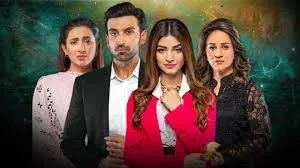
Cast Name
| Actor | Character |
|---|---|
| Sami Khan | Dawar |
| Kinza Hashmi | Maham |
| Komal Aziz | Nvera |
| Sabeena Farooq | Rida |
| Usama Khan | Essa |
| Bushra Ansari | Tlat |
| Asma Abbas | Zahida |
| Javeria Abbasi | Sadaf |
| Tanveer Jamal | Tahir |
| Aadi Khan | Ehaab |
| Saife Hassan | Fareed |
| Nida Mumtaz | Salman’s Mother |
| Danyal Afzal | Salman |
Themes and Messages
- Family Dynamics: “Mohlat” delves into the complexities of familial relationships, including parental expectations, sibling rivalries, and marital conflicts.
- Love and Sacrifice: The series likely explores romantic relationships and the sacrifices characters make for love, emphasizing the emotional and practical challenges involved.
- Social Expectations and Identity: The drama may address societal pressures and personal identity, highlighting how characters navigate and challenge societal norms and expectations.
- Personal Growth and Redemption: Characters’ journeys towards self-discovery and redemption are central, with a focus on overcoming past mistakes and evolving as individuals.
Social, Cultural, or Political Commentary
- Cultural Norms: The drama might critique or reflect on cultural traditions and norms, examining how they impact personal choices and relationships.
- Gender Roles: It could explore gender dynamics within the family and society, addressing issues related to women’s roles, expectations, and empowerment.
- Socioeconomic Issues: There may be commentary on socioeconomic disparities and their effects on individuals and families.
Audience Reception
- Relatability: The themes of family and love are universally relatable, allowing viewers to connect deeply with the characters’ struggles and triumphs.
- Reflection of Real Life: By addressing social and cultural issues, the drama provides a mirror to real-life challenges and societal issues, prompting viewers to reflect on their own lives and values.

Comparison to Similar Dramas
- Similarities and Differences with Other Dramas
- Similarities: “Mohlat” may share common themes with other dramas in its genre, such as family conflicts, romantic struggles, and social commentary.
- Differences: It might stand out through unique character arcs, storytelling techniques, or thematic focus that differentiates it from similar series.
How Mohlat Stands Out or Fits into Its Category
- Standout Elements: The series may be distinguished by its particular approach to storytelling, character development, or visual style.
- Category Fit: It fits into its genre by addressing familiar themes while offering fresh perspectives or innovative elements.
Final Thoughts
Overall Impression of the Series
Summary: “Mohlat” is likely a compelling drama that effectively combines strong performances, thematic depth, and high production quality to create an engaging viewing experience.
Recommendations: Viewers who enjoy emotional dramas with intricate character development and social commentary would likely find “Mohlat” compelling.
Final Rating or Score (if applicable)
Rating: Based on the analysis, the series could be rated highly for its storytelling, performances, and production values, though the exact score would depend on individual assessments.

